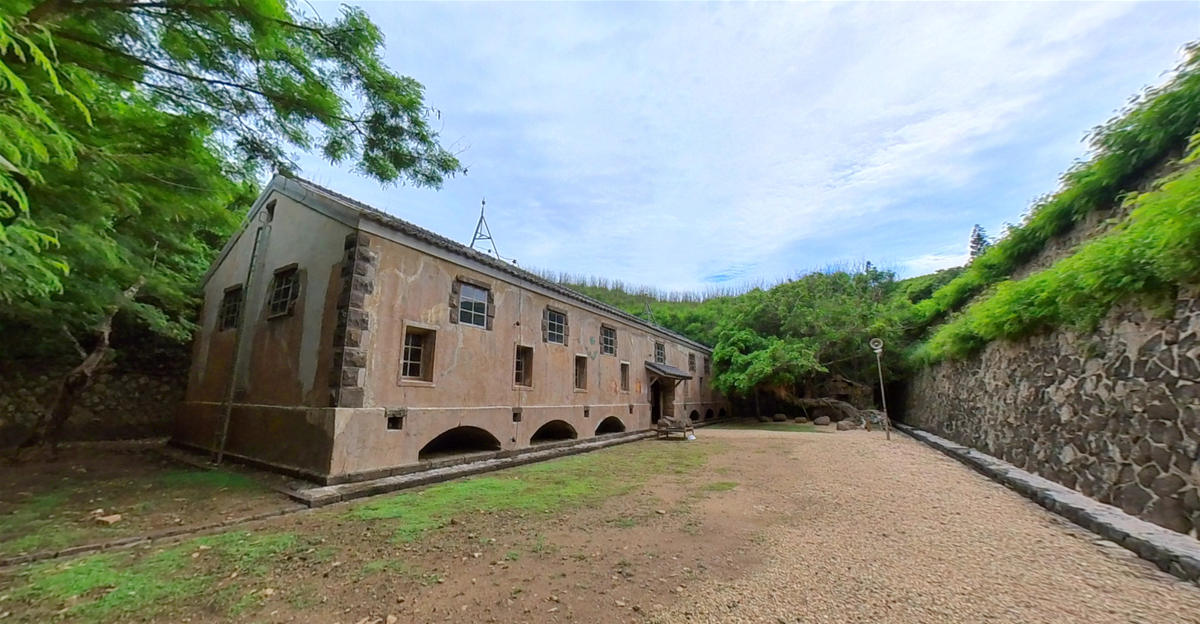Xiyu Ammunition Depot Introduction
We often use "copper wall and iron wall" to describe the sturdiness of a house, but the Western Islet Ammunition Storage is a genuine example of this! The Western Islet Ammunition Storage includes a soil cave-style cool ammunition depot, as well as the cave-style ammunition depot commonly referred to as copper wall and iron wall. It is a rare military structure from the early Japanese colonial period and is one of the four major ammunition depots of the Japanese military in the Penghu Islands. As the name suggests, the Western Islet Ammunition Storage is primarily used to store artillery ammunition. The cave-style ammunition depots come in single-cave and double-cave types, which store both smokeless and smoky explosives separately. The cave ammunition depots feature a double-wall vaulted structure. First, a round arched cave is excavated from the bedrock in the mountain, with an exterior structure built from stacked concrete blocks, while the interior space is constructed from reinforced concrete. To store smokeless gunpowder, not only is there a constant temperature and humidity maintained, but the walls are also lined with copper plates to thoroughly isolate electromagnetic pulses and moisture. The soil cave-style cool ammunition depot is an above-ground building, with exterior walls made of stone walls stacked together, internal walls made of wooden boards, and elevated wooden flooring for moisture-proofing. The roof frame is made with a steel truss, and the tiles used are cultural tiles, also known as smoked tiles. Lightning rods are installed on the roof to prevent lightning strikes. These two types of ammunition depots are rare military constructions from the early Japanese colonial period in Taiwan, showcasing the characteristics of construction techniques during that time, and have been designated as county-level historical sites for restoration and preservation.



































